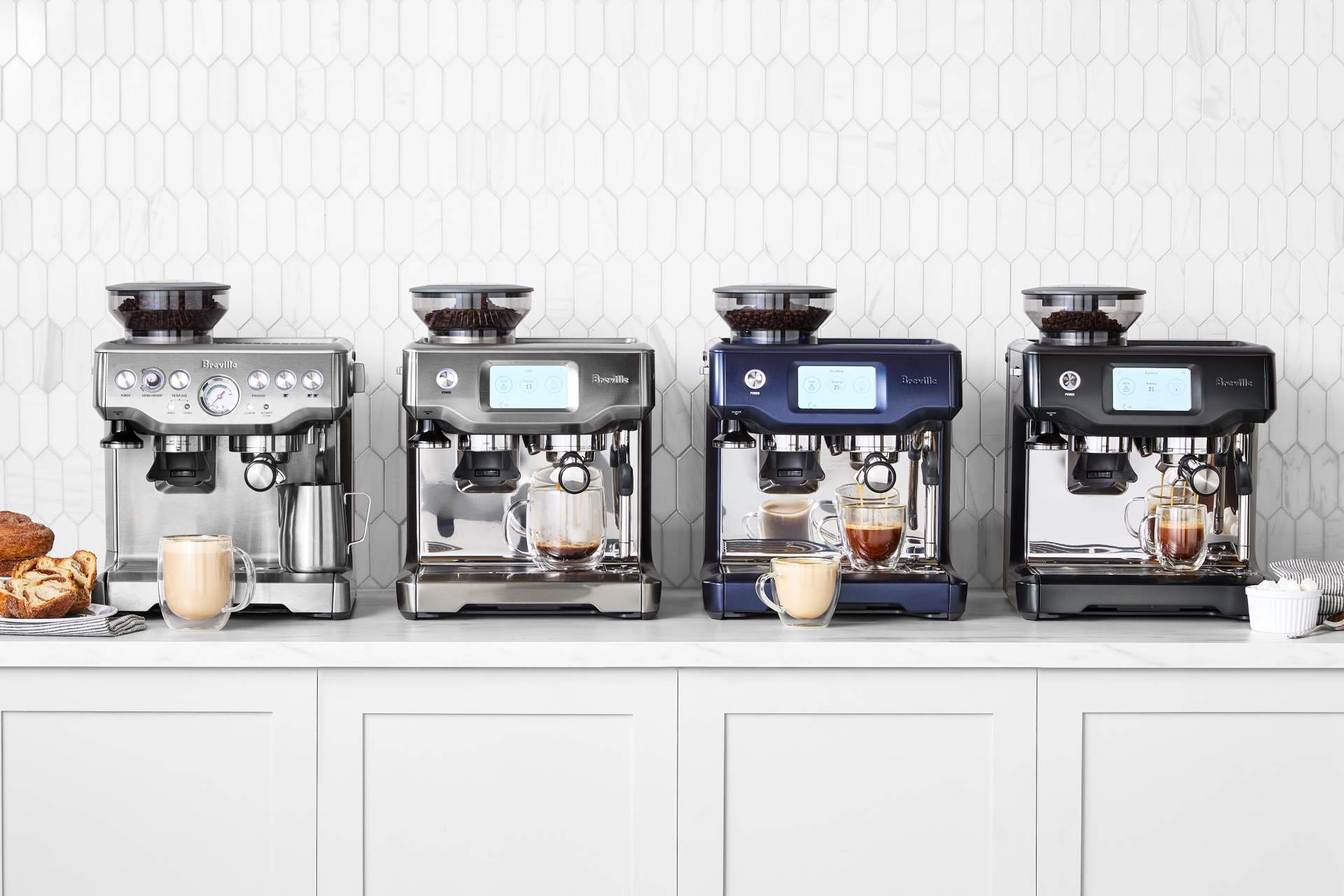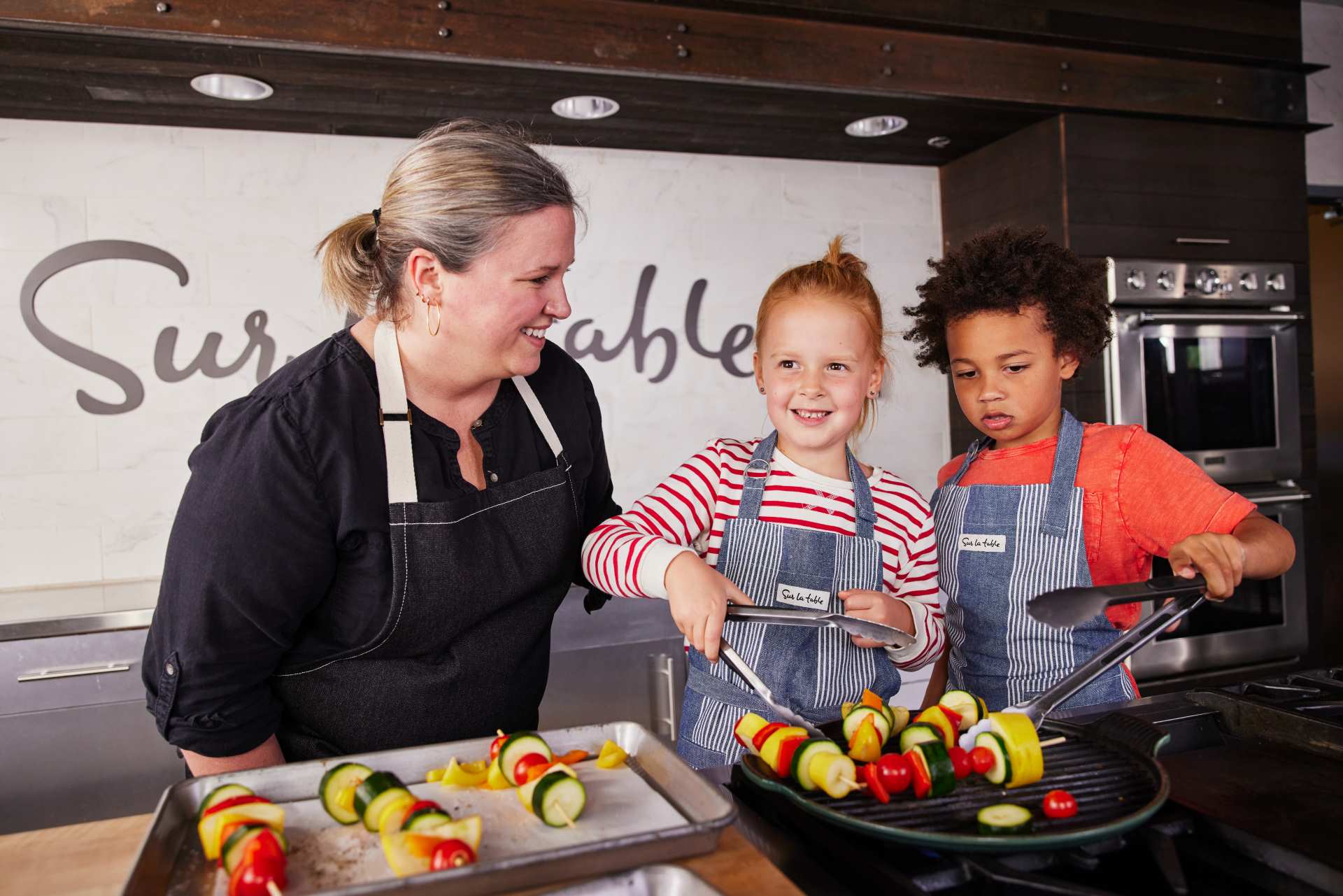Your morning brew, made by you, perfected by Breville.


The kitchen is a place where ingredients come together to create something wonderful. For parents, introducing your kids to the world of cooking isn’t just passing down practical culinary skills—it’s a time for bonding, creating memories and instilling a sense of confidence and creativity in your little ones.
There’s a unique kind of joy that comes from cooking with your kids. It’s not just about the end result—the delicious dish—it’s also about the process. It’s in the laughter when flour dusts the kitchen, the pride in their eyes when they crack an egg perfectly and the stories shared while stirring a pot.
In this article, discover the numerous benefits of teaching kids to cook and gain practical tips for creating a positive and seamless cooking experience for both you and your young chefs.
Hungry for more? Bring your kids to one of our Online Cooking Classes! From homemade breads and macrons to globally inspired feasts, you’ll get expert instruction right from the comfort of your home.
Teaching kids to cook offers a variety of benefits that extend far beyond the kitchen.
For example, baking cookies is an opportunity to teach children about measurements and chemical reactions, like how baking soda makes the dough rise. Preparing a simple salad introduces them to different vegetables and the concept of eating a rainbow for good health.
Cooking also opens doors to learning about different cultures. Preparing a dish from another country can lead to discussions about the people, traditions and history of that place. This culinary exploration makes mealtime both educational and exciting.
Ultimately, cooking turns your kitchen into a lively classroom where every ingredient has a story and every method a lesson. It equips kids with practical skills, enhances their academic abilities, promotes physical and emotional well-being, and strengthens familial and social bonds.
Here are some of the key advantages:
Before you tie those apron strings and dive into the world of cooking, a bit of preparation is key to ensure a smooth and enjoyable experience for both you and your little sous-chefs. Here’s a few tips to get started:
Safety in the kitchen is non-negotiable, especially with young chefs around. Start by teaching them the basics: wash your hands before cooking, tie back long hair and never touch knives or hot surfaces without adult supervision.
Demonstrate how to use kitchen equipment correctly and be there for support, especially when they’re handling something new. Remember, instilling good habits early on is key to a lifetime of safe cooking.
Create a kid-friendly kitchen space where they can reach countertops safely or use tools designed for smaller hands.
These include plastic knives that can cut fruits and vegetables but are safe for little hands, colorful measuring cups and spoons and easy-to-grip mixing tools. Having their own set of utensils makes kids feel more involved and responsible.
Kids are naturally messy, so consider using surfaces that are easy to clean. Placemats or cutting boards can help protect countertops, and washable kitchen linens are a great choice for cleaning up spills.
Kickstart your culinary journey with simple, easy recipes for children.
Pancakes, for example, are a great way to start. They’re easy, require few ingredients and kids can enjoy flipping them (with supervision, of course). Fruit kebabs are another excellent choice, allowing children to play with colors and patterns while also learning about different fruits.
Another hit is homemade pizza, where kids can knead the dough and choose their toppings. This not only makes them excited about what they’re eating, but also gives them control over their meal, which can be very empowering.
Involving kids in cooking is a powerful way to develop healthy eating habits. When children take part in preparing their meals, they’re more likely to eat what they’ve made—even if it includes ingredients they usually avoid.
Use cooking as an opportunity to introduce new foods in a fun way.
For instance, let them help make a vegetable stir-fry, encouraging them to choose some of the veggies. This exposure in a positive, hands-on setting can turn picky eaters into food explorers.
Creating an enjoyable and educational cooking experience for kids is an art in itself. Here are some tips to ensure that time spent in the kitchen is fun, safe and rewarding for both you and your little chefs:
Hungry for more? Bring your kids to one of our Online Cooking Classes! From homemade breads and macrons to globally inspired feasts, you’ll get expert instruction right from the comfort of your home.
Join The Conversation